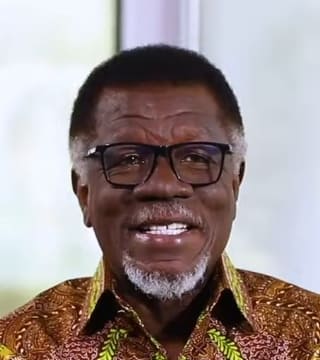Mensa Otabil - Moses' Self-Doubt (10/07/2025)
We’re still in Exodus chapter 6, verses 10 to 12. And the Lord spoke to Moses, saying, «Go in, tell Pharaoh, king of Egypt, to let the children of Israel go out of his land.» And Moses spoke before the Lord, saying, «The children of Israel have not heeded me; how then shall Pharaoh heed me? For I am of uncircumcised lips.»
Interesting development. You know, anytime you read the scriptures, you get amazed at how heroes of faith behave just like us. They go through our passions, our emotions, our uncertainties, and our doubts. Moses was infected by the doubt and unbelief of the children of Israel. Now remember when God called Moses on Mount Horeb? Moses had self-doubts; he said he didn’t know how to speak and he wasn’t ready to go back to Egypt. God, through a series of spiritual encounters, helped him get to the place of willingness. So Moses started his journey fully assured by the miracles God had shown him that he was going to have victory. He goes to meet the children of Israel and their leaders, and they support him.
Then he goes in to meet Pharaoh, and I’m sure that at this time he has seen so much success he thinks the next step will also be easy and successful. He meets Pharaoh, and it’s a roadblock. Pharaoh is mad, he’s angry, and he complicates the situation of the Israelites. Then the Israelites stand against Moses, and when they turn against him, Moses turns to God. God assures him and says, «Go back and I will show the people.» The people say, «Hey, Moses, we’re not ready to heed you.» So now Moses is infected with the self-doubt of the people. You know, there is a way in which unbelief around you can become unbelief within you. People’s fears can become your fears; people’s uncertainties can become your uncertainties, especially when you are a leader and the people complain so much about you. It gets to you, and it got to Moses.
Understand, so Moses, the same self-doubt that he had at Mount Horeb resurfaces. He’s back to reset mode, factory settings. He’s back to where he was, a man of no confidence, and the Israelites have rejected him. His logic is very simple: he says, «God, if the people I’m supposed to deliver-the Israelites-are in trouble and have rejected me, they don’t heed me, how much more will Pharaoh the oppressor listen to me?» It’s a logical thing, but you know when we’re dealing with God, human logic is one thing and God’s logic is another. When God says, «Let my people go,» He has factored in Pharaoh’s opposition. He knew Pharaoh would oppose; He knew the process, but He knew the end.
Moses should have known that God is faithful, that God’s promises are sure. So even when I go through roadblocks, God is faithful, and that’s what we also have to learn. You know, sometimes you start with uncertainty and then maybe you share a message, you go to church, hear a message that pumps up your faith, and then you face a crisis. You go back to factory settings, and your uncertainties come back again. You don’t know what to do or where to turn and how to overcome what you’re going through. That is Moses’s story; he’s back to where God found him. In the face of resistance, his self-doubt emerges. I don’t know what imagines when you face opposition. Is it your fears, your insecurities, your doubts? What is it that comes back anytime people reject you when you feel your mission is not progressing? What comes back? You have to look out for it because it’s Satan’s way of keeping you from your assignment and from doing what God wants you to do. But God will see you through and give you the victory.
Let’s pray. Say with me: «Heavenly Father, You are my confidence. Help me to stand firm in faith when I feel rejected.» In Jesus' name, amen and amen. Well, I’ll catch you again tomorrow. I’m Pastor Mensa Otabil. Shalom, peace, and life to you.

